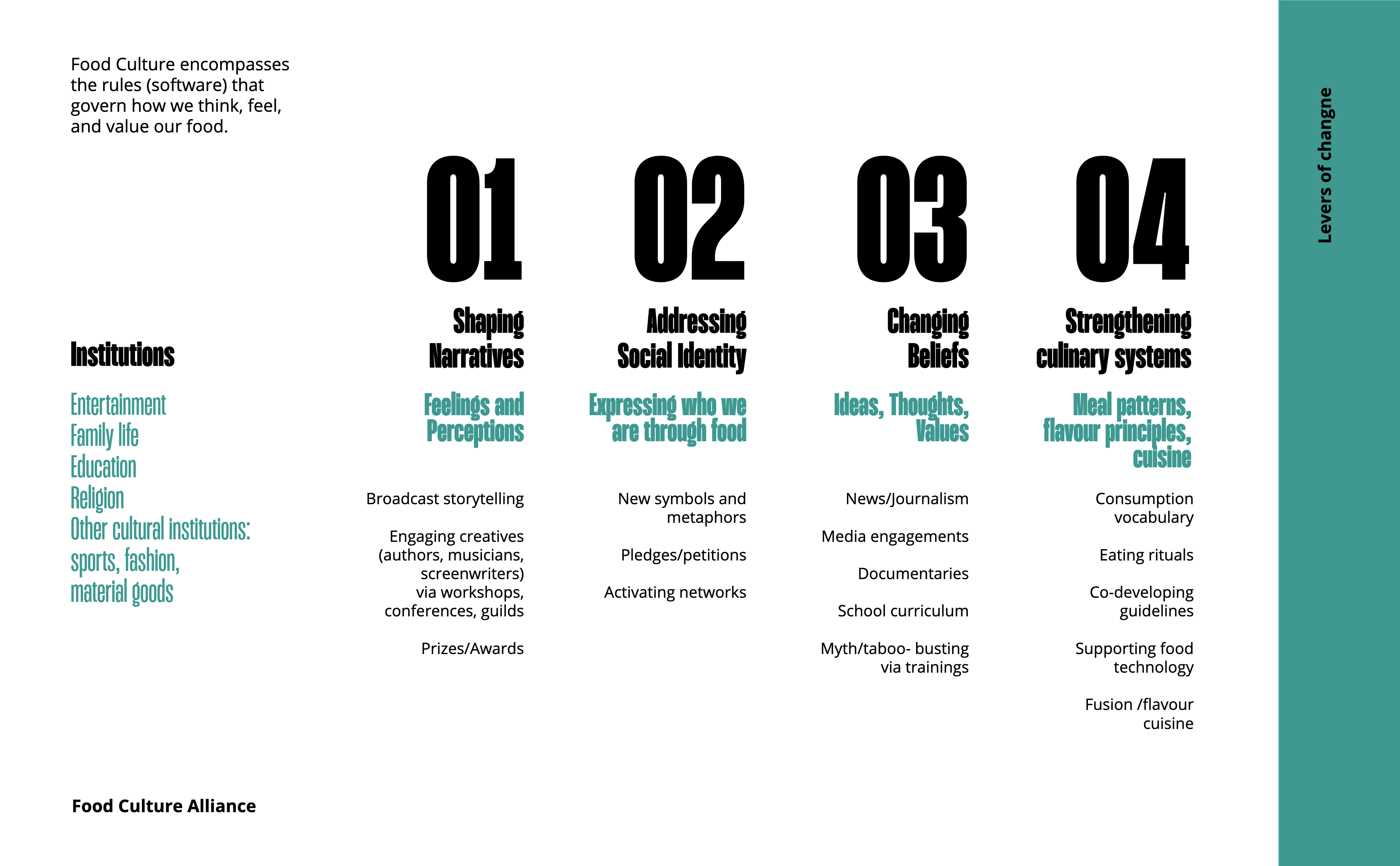Food Culture Alliance
Our global food system has shaped societal preferences in favour of consuming unhealthy and unsustainable foods, fuelling poor health and accelerating climate change. We need radical, accelerated transformation in our consumption habits across society to combat this. Food culture impacts the way society thinks and feels about and values certain foods, and it has a profound impact on consumption habits. Yet, food culture remains unexplored and underutilised.



